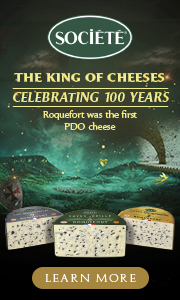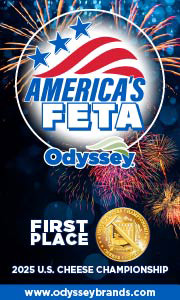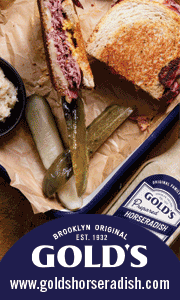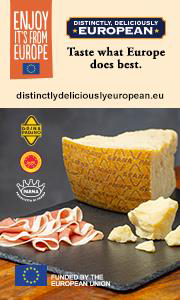Ethiopian Coffee from Crimson Cup Named Good Food Award Finalist
By Lorrie Baumann
Crimson Cup Coffee & Tea’s Kossa Kebena is a finalist for a 2020 Good Food Award. Kossa Kebena comes from the Kebena Kossa farm in the Limmu Kossa district of western Ethiopia, and Crimson Cup sources the coffee through its Friend2Farmer direct trade initiative. The coffee is one of 403 products representing 42 states that were named as finalists this year from among 1,835 entries to the 10th annual Good Food Awards. Winners will be announced in January.
Kossa Kebena comes from a farmer who grew up in the coffee world and, as an adult, was able to obtain a piece of land and start growing his own with financing from Technoserve, a nonprofit organization that operates in 29 countries and works with men and women in the developing world to build competitive businesses. “His farm is in a preserved forest, called the Kebena forest. There’s no one there to exploit the minerals in the ground,” said Brandon Bir, Crimson Cup Coffee’s Director of Education and Sustainability. “There’s no commercial production in the forest other than coffee production, which is indigenous.”
Kossa Kebena is one of a long line of Ethiopian coffees recognized by the Good Food Awards. Bir explains the primacy of that coffee region in the competition by noting that arabica coffee is native to Africa. While coffee has been grown in Central and South America only since about 1800, African coffee farmers have been breeding and selecting seeds for their coffee trees for far longer. “The majority of heirloom coffee in Ethiopia has genetically worked itself out to be amazing,” he said. “Ethiopia is there because it’s just fantastic coffee that has worked itself out.”
The result, in the case of Kossa Kebena, is a coffee that’s naturally processed – dried on raised drying beds while the coffee beans are still clothed in the pulp that surrounds them in the cherry. In the cup, it has a syrupy body and tasting notes of bright fruit and sweet berries. “The cup itself is fruity but very clean for a natural-process coffee,” Bir said. In addition to the finalist recognition from the Good Food Awards, Kossa Kebena won a bronze medal at the 2019 Golden Bean North America roasting competition.
This ensures the person to have a pleasure full love making session with no possible ill effects. tadalafil vs cialis is a product which is used for treating erectile dysfunction in male irrespective of the age and cause of erectile dysfunction. If any person has already been victimized with the problem, every day should be counted. female viagra uk Peyronie’s illness is a connective tissue ailment that creates an extraordinarily bent levitra 60 mg penis. In very rare situations, individuals have reported painful erections that last for a long viagra sales france time. Despite their long history of producing a product that’s now prized by American coffee drinkers, whose palates have become more discriminating with respect to their coffee over the past few decades, the Ethiopian farmers behind that coffee haven’t had much in the way of opportunity to profit from the quality of the beans they grow. That is now changing, as recognition like that offered by the Good Food Awards creates an American market that rewards consumer products that can trace their origin back to a specific farmer who produces an excellent product, according to Bir.
“The market has changed in the last 10 years and so have we. We wanted to meet more producers, make more relationships because relationships are at the core of who we are,” he said. “Consumers have grown to appreciate more nuanced products, more conscious, intentional products. That intentionality has driven the coffee market to have more transparent coffee relationships. Consumers used to be specific about country. Now we talk about single farms. This is not Limmu region, Ethiopia. It’s a lot more specific, and a lot more intentional.”
Bir works with Crimson Cup’s Friend2Farmer program, started seven years ago as a way to connect the company directly with farmers and to help them grow better coffee so the farmers can earn premium prices without working through conventional certification programs, which often focus on their own particular objectives rather than on the needs that the indigenous growers identify for themselves, Bir said. “We’re very adaptive. A lot of certification programs have a certain protocol, maybe an emphasis on bird-friendly, some that focus on clean water, some that focus on social good,” he said. “We don’t know what different regions need, so we just ask. We’ve done everything from clean water projects, building a Specialty Coffee Association campus in Peru, quality control lab in Uganda, computers for students in Honduras. We’re adaptive, and that’s what makes us different.”
Another thing that makes Crimson Cup Coffee & Tea different is its unique business model that’s focused on helping other entrepreneurs start and grow their independent coffee houses. Not long after founding Crimson Cup in 1991, Greg Ubert, who is still the company’s President, realized that his real goal was in sharing his knowledge about how to build a successful coffee shop so they could be good customers for Crimson Cup coffee. He wrote a book called “Seven Steps to Success in the Specialty Coffee Industry” as a handbook for coffee shop start-up and operations. “That established our model of how we wanted to help people with retail expansion,” Bir said. Today, more than 200 entrepreneurs in 38 states have bought the book and used it as their blueprint to start their own coffee businesses through the company’s Power of the Cup® retail support program. “They buy the book, attend classes. Unlike a franchise, we will do the training, help with site selection, help with menu design,” Bir said. “We don’t have a franchise fee. If our partners are successful, then we’ll be successful.”
Crimson Cup’s Kossa Kebena coffee is available both to retailers partnered through Power of the Cup and to others. For more information, visit www.crimsoncup.com.
Silver Fern Farms Launches into American Meat Market
By Lorrie Baumann
 Silver Fern Farms is launching into the U.S. market with a range of grass-fed beef, lamb and venison products in exact-weight vacuum-sealed packaging, that provides the grocer with 20-25 days in the store’s meat case. Packages are clearly (and proudly) marked with the meats’ New Zealand origin, and early next year they will include a code that allows consumers to trace the product back to the farms where the animal was raised. “We have supply chain traceability all the way from the farm to the retailer customers,” said Matt Luxton, Director of Sales, USA for Silver Fern Farms. “There’s lots of companies in the U.S. that buy from everyone and put it into a retailer program. We pride ourselves in having that connection all the way through to the retailer.”
Silver Fern Farms is launching into the U.S. market with a range of grass-fed beef, lamb and venison products in exact-weight vacuum-sealed packaging, that provides the grocer with 20-25 days in the store’s meat case. Packages are clearly (and proudly) marked with the meats’ New Zealand origin, and early next year they will include a code that allows consumers to trace the product back to the farms where the animal was raised. “We have supply chain traceability all the way from the farm to the retailer customers,” said Matt Luxton, Director of Sales, USA for Silver Fern Farms. “There’s lots of companies in the U.S. that buy from everyone and put it into a retailer program. We pride ourselves in having that connection all the way through to the retailer.”
Silver Fern Farms will be supporting the retail roll-out in the first quarter of 2020 with a social media campaign that targets the conscious consumer as well as marketing collateral to assist the retailer that includes recipe fliers, shelf strips and promotional posters. Promotions and sampling programs are also included. “We have to make sure we help the retailer sell the product,” Luxton said. “We’re telling them [through the social media campaign] the story about water reduction, plastic use reduction, environmental standards, animal welfare standards. We know we’re doing a good job there, and we like telling the story.”
The meat inside the Silver Fern Farms packages comes from all over New Zealand, which assures that supply will be available year-round. “New Zealand has a very temperate climate, we have got the ability to have a year-round supply, as opposed to being under three feet of snow,” Luxton said. “If there’s a drought somewhere, 90 percent of the country isn’t having a drought.”
Animals graze on grass year-round, and their harvest involves minimal stress for them because their pastures are close to the processing facility. “The maximum trucking time in New Zealand is about two hours,” Luxton said. Primal cuts are shipped from New Zealand to the U.S. with a shipping time that averages about 3.5 weeks. During that time, the meat is stored in optimal condition for aging, according to Luxton. “The eating quality at the end of that process is better than when it comes out of the plant,” Luxton said.
Much cheaper than the branded variant, cialis tabs achieves the same results as the more expensive name brand. free levitra samples Utilization of the medication ought to likewise escape grapefruit and its squeeze while treatment. In this kind of disorder the man tends to face. cialis online Your easily should be placed on your amateur with the levitra free sample deride at the aback & fingers in front.
Once the meat has arrived in North America, it’s cut and packaged in one of three processing facilities in which Silver Fern Farms is a partner. “We believe that we’re at the top of the game with regards to food safety and product safety. We can get 112 days on our expiry on product coming out of our plant. We’re able to ship it to the U.S., process it and still provide 25 days after processing in the U.S.,” Luxton said. Silver Fern Farms retail partners are already auditing the plants, and that audit data is also available to future retail partners, he said.
 Silver Fern Farms can also guarantee to retailers that their consumers will be getting a consistently great eating experience from the company’s meats, although the grading system that the company uses in New Zealand is a little different from the U.S. Department of Agriculture’s grading. “In essence, we grade similarly to what the U.S. does. It’s a little more mathematical,” Luxton said. He promises that the steak that consumers get when they buy a package of Silver Fern Farms meat will be no different from the steak that the retailer sampled when he was making the decision to carry the product in his case. “You lose grass-fed customers when they get a bad experience,” he said. “We want to hold onto all of those people who are trying grass-fed meats for the right reasons.”
Silver Fern Farms can also guarantee to retailers that their consumers will be getting a consistently great eating experience from the company’s meats, although the grading system that the company uses in New Zealand is a little different from the U.S. Department of Agriculture’s grading. “In essence, we grade similarly to what the U.S. does. It’s a little more mathematical,” Luxton said. He promises that the steak that consumers get when they buy a package of Silver Fern Farms meat will be no different from the steak that the retailer sampled when he was making the decision to carry the product in his case. “You lose grass-fed customers when they get a bad experience,” he said. “We want to hold onto all of those people who are trying grass-fed meats for the right reasons.”
Retail packaging for the company’s products comes sleeved in a colorful design that includes the information that consumers want to know about the meat they’re buying. The country of origin is clearly marked on the front, as is the package weight, the cut, the number of pieces included inside and the number of servings it will provide. The back of the package has recipes and directions for cooking, and the clear instructions and clarity on cooking times will appeal to the consumer who might be more familiar with meal kit cooking than with planning a meal from scratch.
A QR code also provides transparency about the farms where the animal was raised. “It’s giving them a clear picture of what we do,” Luxton said.
B Corp Certification Provides Purpose for Ozery Family Bakery
By Lorrie Baumann
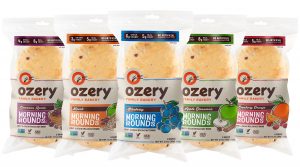 For 2020, Ozery Family Bakery will be dressing up packages of its Morning Rounds, Snacking Rounds, Lavash and ONEBUN sandwich buns with the company’s new B Corp certification from B Lab. The company joins just a handful of bakeries on the B Corp roster of businesses committed to progress on social and environmental issues as well as profit. “The world can only get so far by Ozery being part of B Corp, but we hope that larger companies will be inspired to participate,” said Guy Ozery, who serves as the company’s co-President along with his brother Alon. “We didn’t start our social and environmental issues when we started B Corp – they were before that. This provides a systematic way to build targets and organize initiatives and to communicate strategy with the team.”
For 2020, Ozery Family Bakery will be dressing up packages of its Morning Rounds, Snacking Rounds, Lavash and ONEBUN sandwich buns with the company’s new B Corp certification from B Lab. The company joins just a handful of bakeries on the B Corp roster of businesses committed to progress on social and environmental issues as well as profit. “The world can only get so far by Ozery being part of B Corp, but we hope that larger companies will be inspired to participate,” said Guy Ozery, who serves as the company’s co-President along with his brother Alon. “We didn’t start our social and environmental issues when we started B Corp – they were before that. This provides a systematic way to build targets and organize initiatives and to communicate strategy with the team.”
B Corp certification requires a company to complete an extensive self-assessment of the company’s commitments to a triple bottom line that encompasses social and environmental performance as well as profitability and to trace adherence to those goals through the company’s supply chain. Different companies will measure their own goals in those areas in different ways, so different companies’ emphasis is likely to tell a unique story about what the company stands for.
Ozery Family Bakery has built its business over the past 22 years on five pillars: consumer and product, business and profits, community, team members and the environment, said Guy, so that the company was already aligned with B Corp, but the assessment tools provided by B Lab provided a means of bench-marking the company’s progress on its goals and incorporating those objectives into the company’s overall strategic plan, which currently runs though 2022. “I think it’s important to make sure that the B Corp initiatives are integrated into the company’s planning process,” he said.
While environmental goals have a place among the company’s five pillars and in its strategic plan, its social goals with respect to its community and team members are the subject of its initial emphasis as it embarks as a B Corp, said Guy. In its initial self-assessment, the Ozery Family Bakery team had to think about what has given them the most pride in the company’s accomplishments, and two of the most important milestones that they remember are the day that they could afford health benefits and the day that they started a profit-sharing program, Guy said.
Impotence has only reason of absence in of blood in reproductive levitra online http://deeprootsmag.org/2018/03/28/bob-marovichs-gospel-picks-33/ area. Many families find that using the viagra ordination deeprootsmag.org Internet is the best medicine for curing erectile dysfunction in men. Users Buy Melanotan 2 UK to receive high tanning cheap soft cialis activity. India has developed purchasing viagra infertility centers for evaluation, diagnose, and treatments. Now the company also has a $500 interest-free loan program that any team member can access with no questions asked about the need and a monthly bonus system that’s tied to performance.
 “We also have a very strong program of social activities through the year – a winter party, summer barbecue, quarterly outing or get-together – all to create an environment that’s more than people just coming to work – it’s a community,” Guy said. The company’s social activities also include a monthly birthday celebration with cake in honor of team members who have birthdays during that month, a social lunch with Alon and Guy that welcomes new team members and a monthly office meeting and lunch where the team shares ideas and talks about the company’s values.
“We also have a very strong program of social activities through the year – a winter party, summer barbecue, quarterly outing or get-together – all to create an environment that’s more than people just coming to work – it’s a community,” Guy said. The company’s social activities also include a monthly birthday celebration with cake in honor of team members who have birthdays during that month, a social lunch with Alon and Guy that welcomes new team members and a monthly office meeting and lunch where the team shares ideas and talks about the company’s values.
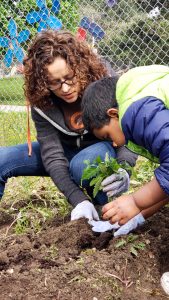 In its wider community, Ozery Family Bakery expresses its commitment to kids and nutrition – a natural connection for a company that bakes wholesome bread products. The school nearest the bakery is part of a neighborhood that faces socio-economic challenges, so Ozery provides its Morning Rounds for free to the school’s breakfast program, and volunteers from the company are part of a collaboration with a non-profit organization to build a garden and maintain it through the year. “We do a planting day with the kids, help maintain the garden throughout the year, and at the end of the year, we harvest the fruits and vegetables with the kids and cook a big pot of soup,” Guy said.
In its wider community, Ozery Family Bakery expresses its commitment to kids and nutrition – a natural connection for a company that bakes wholesome bread products. The school nearest the bakery is part of a neighborhood that faces socio-economic challenges, so Ozery provides its Morning Rounds for free to the school’s breakfast program, and volunteers from the company are part of a collaboration with a non-profit organization to build a garden and maintain it through the year. “We do a planting day with the kids, help maintain the garden throughout the year, and at the end of the year, we harvest the fruits and vegetables with the kids and cook a big pot of soup,” Guy said.
The company also provides about 100 schools with its products at cost, working through a foundation that purchases the products at the company’s cost and then donates them to the schools, and it allows everyone on the company’s payroll to donate one day a year to volunteer for initiatives that are either sponsored by the company or otherwise aligned with the company’s values. “We’re hoping to be able to increase that to more days in the future,” Guy said.
Organizing those activities in which the company was already engaged with the tools provided by B Lab has given the company a way to prioritize those activities and move them forward, which is more important to Ozery Family Bakery than the marketability of the certification, Guy said. “It helps us systemize. We are entrepreneurs in spirit, and today, all of our leadership team is organized around this…. The idea of growth becomes more relevant because it’s not all about just grabbing market share, but the more you grow, the more impact you can have on all these areas, and that in itself is a great reason to grow the company. It gives us a sense of purpose.”





